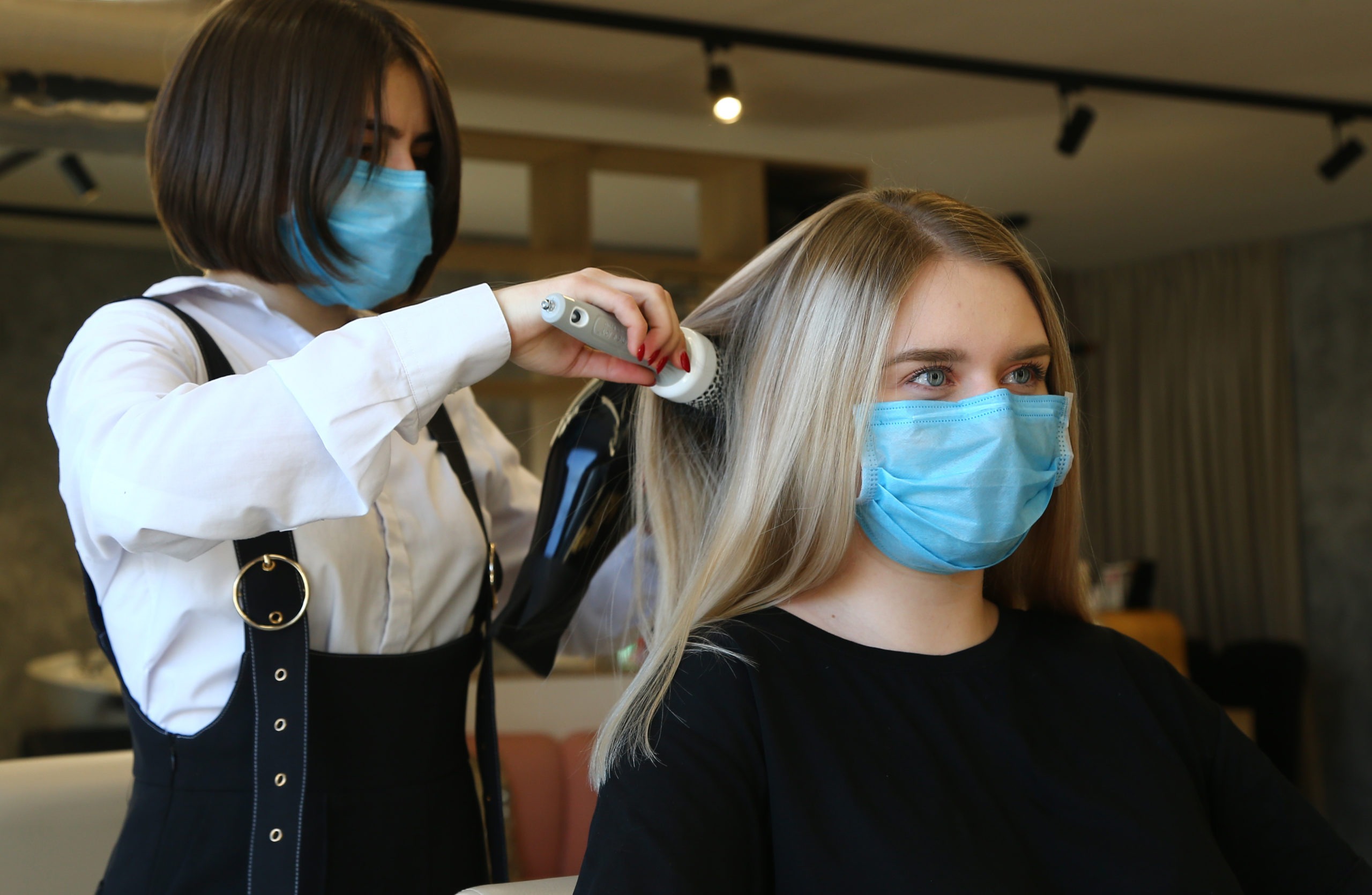Russia’s small businesses buckling under virus restrictions
Russian small businesses such as this Vladivostok hairdresser have been struggling under coronavirus restrictions (Pavel Korolyov)
Moscow (AFP) – When President Vladimir Putin announced a paid holiday for the month of April to keep Russians home and prevent the coronavirus from spreading, many small business owners braced themselves.
How would they keep to the president’s promise of paying employees while they were shut down?
The small furniture manufacturing company where Natalia Garnova works has told her she will receive only half her monthly salary of 40,000 rubles ($544).
“I do not know how I will feed my children tomorrow!” the 41-year-old told AFP.
“This month, we have no orders… We already know that several people will be laid off.”
Lawmakers are due Tuesday to table legislation to help small and medium-sized businesses, but for many it could already be too late.
According to the Center for Strategic Research, a think tank close to the government, about a third of companies it surveyed forced employees to take leave without pay from the first week of the non-working period.
Nearly half of the thousand companies surveyed reduced wages, 16 percent announced redundancies and nine percent anticipated bankruptcy this year.
The non-working period was initially introduced by Putin on March 28 and extended on April 2 to the end of the month as part of tightening measures to slow COVID-19.
Russia on Monday reported 2,558 new infections — its biggest daily increase to date — bringing its total tally to 18,328 cases and 148 deaths.
The fallout could see the number of unemployed rise from 2.5 to 8 million this year, according to Russia’s Audit Chamber.
– Difficult to survive –
Some self-employed Russians, like 29-year-old personal trainer Olga Novikova, have already seen their incomes vanish.
“The longer it lasts, the more difficult it becomes to survive,” she told AFP.
She cannot give lessons in gyms since they were closed earlier this month.
Coaching online is not an attractive option, Novikova says, because of competition from any number of free alternatives.
For Russians whose purchasing power has already been hit over recent years, the economic situation looks set to become even more precarious.
The outlook is especially bleak for the nearly two-thirds of Russians who — according to a survey last year by the Levada polling agency — have no savings.
In an effort to support entrepreneurs, the government has rolled out tax cuts and offered deferred payments. The central bank has released funds for banks so they can offer cheap loans to small businesses.
But Igor Nikolayev, director of the Institute for Strategic Analysis of FBK Grant Thornton Russia, said the “government measures should be on a bigger scale and better targeted.
“There should be direct support for the citizens, those who suffer most from the situation,” he added.
– Economic crisis fears –
“The state has money,” he said, citing the sovereign wealth fund worth $160 billion, which the Kremlin seems reluctant to tap.
“If a company has no income, how can wages be paid? They must be subsidised,” Nikolayev said.
Without government intervention, Russia faces an economic crisis similar to the one that followed the collapse of the Soviet Union, he said.
“GDP fell by 14.5 percent in 1992. The Russian economy could fall to the same level,” he added.
On April 8, Putin asked regional governors to introduce coronavirus measures that would not do unnecessary damage to the economy.
Beauty salons and hairdressers reopened in the Far East the next day. But Top Gun, a barber shop in Vladivostok run by Denis Lukoyanov, is still struggling.
With only one customer allowed at a time, keeping afloat is “almost impossible,” he told AFP.
Political scientist Konstantin Kalachev said the situation is perilous for the president, who is tasked with safeguarding the health of Russians as well as the economy.
If the coronavirus fallout turns out to be worse than expected, Kalachev said, “Putin will be seen as the one who misjudged the situation.”
Disclaimer: Validity of the above story is for 7 Days from original date of publishing. Source: AFP.


